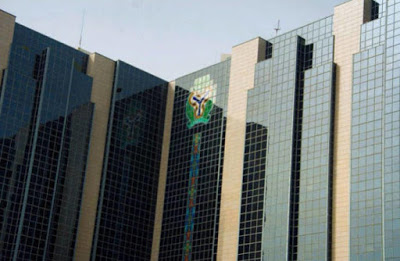The Central Bank of Nigeria (CBN) seems to have hit the bull’s eye with its creative and strategically combined policies on foreign exchange, namely the reinforced intervention and supply of dollar into the system and introduction of the Investors’ and Exporters (I&E) foreign exchange window. The two policies have improved liquidity in the spot market, engendered relative stability with rates almost converging, enhanced investors’ confidence and boosted stock market transactions and real sector production.
The I&E window allows market-determined exchange rate, whereby sellers and buyers of dollars transact between themselves at a mutually agreed rate. The introduction created a powerful impact on the stock market which rallied 30 per cent in the wake, signifying the interconnectedness between the money and capital markets and how good policies drive economic growth and development.
The importance of vibrant stock markets in wealth creation and driving economic growth and development cannot be overemphasized. Experts believe that without a stock market (the hub of the capital market), in which people could quickly and easily trade assets, the global economy would quickly grind to a halt. ‘’If there were no stock exchanges, there would be no market place where people could sell their securities for cash and capital would soon be sluggish and the financing of new ventures, no matter how promising, would be heavily curtailed.’’
The stock market had opened the year on a negative note due to the decline in oil price and the hitherto CBN’s restrictive foreign exchange policy, but surprisingly made a rebound in the second quarter of April powered by the I&E Window which engendered positive sentiments and energized greater participation by foreign portfolio investors and Pension Funds. Foreign investors are pleased with the new CBN Window, as a result, their participation in the market rose from N22billion in April to N73billion in May, a contrast to the outflow of N109billion versus N24billion inflow, recorded in March.
In June, the stock market galloped and gained N417billion in one trading day, noted as the highest daily gain in two years. On trading day, Monday June 5, 2017, the market capitalization spiked from N10.845trillion to close at N11.262trillion and the All Share Index gained the highest in 23 months of 3.9 per cent to close at 32,578.38. With the development, market operators and investors creamed off handsome returns from capital gains.
Reportedly, Africa’s richest man, Aliko Dangote, effectively made N518billion (US$1.6billion) in three trading days. Dangote Cement Plc was on the forefront of the gainers, with a gain of N560billion in the first three trading days of June, representing 69 per cent of the total market gains, and the company’s capitalization closed at N3.578trillionwhich accounted for 30 per cent of the entire market capitalization.
Besides boosting the stock market, CBN’s reinforced dollar supply is also energizing the real sector. The apex bank has made up to 28 interventions since February 2017, and notwithstanding scepticisms in some quarters, it seems resolute to sustain the trend. Between February and March, 2017, it made six critical interventions as follows: (Tuesday, February 21- US$417million, Thursday, February 23- US$231million, Friday March 3- US$380million, Monday, March 6- US$367million and Tuesday, March 7-US$100million. Up to June, it has sold about US$6.14billion.
Attesting to the positive impact of the interventions, the Managing Director, Binatone, Nigeria, Mr Prasun Barnerjee, noted in a press report, that ‘’initially most manufacturers had that challenge but in the last two months there have been changes. Foreign exchange has been readily available and relatively stable. There is big hope for manufacturing in this country.’’
The Purchasing Managers’ Index (PMI) report for June published by CBN, also show there was an increase in the Manufacturing Purchasing Managers’ index to 52.9 index points in June 2017, which indicated an expansion in the manufacturing sector for the third consecutive month. The PMI attests to the economic wellness of the manufacturing sector based on five parameters, namely, new orders, inventory levels, production, supplies deliveries and employment environment.
Experts interpret that a composite index of above 50 points indicate a general expansion in the manufacturing/ non-manufacturing economy, 50 points indicate no change and below 50 points indicate a decline. The production level index for manufacturing sector also expanded for the fourth consecutive month in June 2017, standing at 58.2 points which indicated an increase in production.
Mobile Text
In June 2017, CBN Governor, Godwin Emefiele, clocked three years in office. He has been widely noted as a man with the courage of his own convictions even in the face of contradictory constructs, and one of the most challenged Governors of the apex bank who has demonstrated pragmatism in the evolution and management of policies aimed at reinventing and defining a new direction for the economy. As noted by Dangote,‘’the policies of the Central Bank contributed in saving the economy’’,
Mobile Text
Some of the major highlights of Emefiele’s three years in office include, keeping a lid on inflation through a tight monetary policy. He has continued to retain the Monetary Policy Rate (MPR) at 14 per cent to avoid credit overextension which CBN believes could escalate inflation which presently is at 16.25 per cent, down from a 17.78 per cent in April, and could also create a knock on effect in the banking system. Even in the present dear money situation, it has been reported of a gradual rise in banks’ Non-Performing Loans(NPL), though apex bank has reassured that it is still within control and was working with the banks to rein it in.
Another major highlight is in the area of development banking which has witnessed the apex bank’s intervention in the agricultural sector and other critical sectors of the economy with good results. CBN’s Anchors Borrowers Programme sparked off a ‘’Rice Revolution’’, such that Nigeria may start exporting rice before the end of 2017.
Though there has been pockets of criticisms on CBN’s direct interventions, Emefiele’s stance and action seemed to be driven by his passion to tackle the problem of unemployment through other means besides using the core variables that are traditionally in the purview of Central banks.
In his maiden press briefing as CBN Governor, he had noted that, Central Banks go beyond their traditional scope to directly intervene in certain critical sectors for the greater benefit of their economies. ‘’Early and recent evidence of central banking in places such as the United States, England, Japan and France indicate that supporting selected economic sectors using ‘’direct methods’’ of intervention have been essential tasks of their central banks.’’
Also, in the thick of dollar scarcity, a development which required creative solutions to keep the economy running, Emefiele evolved a quasi import substitution policy which forbade access to the official foreign exchange window for the importation of some 41 items, a policy which aligns with the infant industry argument, and is needed to stimulate local industrial growth.
Post Views: 27




